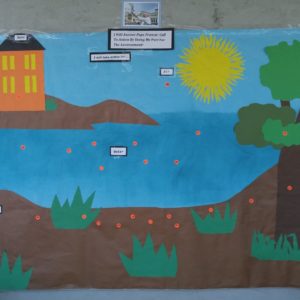There are so many issues advocates have to work on: jobs, homelessness, life, healthcare, etc. How do we fit Environmental Justice in?
The good news is, it’s not too hard to do.
Environmental Justice basically means ensuring that all communities, no matter their race, origin, income, or location be given fair environmental treatment. It gets these communities involved in issues relating to the environment and environmental policies. Environmental Justice advocates work to protect communities, especially those deemed vulnerable and/or disadvantaged, and not let them be the “dumping ground” of polluting companies. These communities typically don’t have the resources for better healthcare, nutrition, and housing location. They also typically don’t have the “political power to have their voices heard by regulators.”
Pollution affects health, whether it’s from air, water, or land. When our health is affected, what happens? Children miss school. Adults miss work. Our productivity goes down. When these things happen, it can lead to fewer earnings, job loss, or inability to find a job. And when this happens, we become unable to pay the bills, which can lead to loss of home. It doesn’t stop here. Being homeless means (for example) not having a proper place to go to the bathroom, so many times the “bathroom” is only a bush or nearby river. This of course then pollutes the land and water. People, homeless or not, fish in that water–which would have contaminates from other sources as well–and eat that fish or sell to those who do. It becomes a nutritional issue.
So when we work to clean our air, our water and our land, we are working for people’s health, jobs, housing, and nutrition, all Social Justice issues.
Environmental Justice IS Social Justice.

